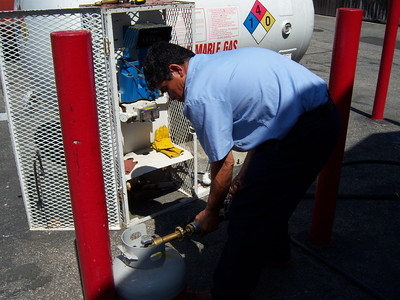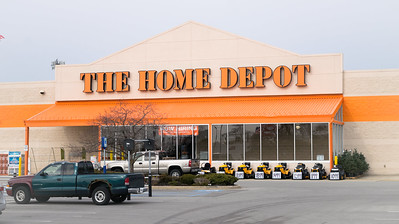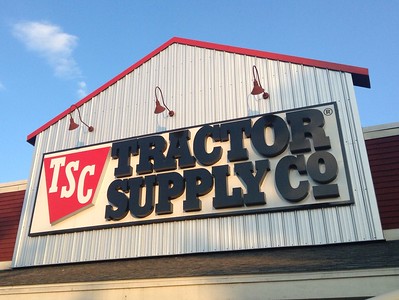
When it comes to choosing between propane tank exchange and refilling, understanding the cost implications is essential to make the most cost-effective decision. In this article, we will explore the factors that influence the cost-effectiveness of these two options and provide a comprehensive analysis to help you make the right choice.
Local Prices
The first factor to consider when deciding between propane tank exchange and refilling is the local price for each service. Propane prices can vary significantly by location, so it’s crucial to research the prices for both tank exchanges and refilling services in your area.
In general, refilling a propane tank is often cheaper per gallon than exchanging it. This is because, when you refill a tank, you only pay for the propane you need, whereas, with an exchange, you pay a fixed price for a full tank, regardless of how much propane was left in your old tank.
However, it’s essential to remember that propane prices can fluctuate, and local factors such as transportation costs, regional taxes, and supply and demand can impact the cost of propane. Be sure to compare prices at various refilling stations and exchange locations to determine which option offers the best value in your area.
Tank Condition
The condition of your propane tank plays a significant role in determining whether a tank exchange or refilling is more cost-effective. Propane tanks have an expiration date (typically 12 years from the manufacturing date), after which they must be re-certified to ensure their safety and reliability. Re-certification can be an additional cost to consider if your tank is nearing its expiration date.
If your propane tank is old, rusted or damaged, or nearing its expiration date, exchanging it for a new one might be the better option. Propane tank exchanges typically provide you with a clean, inspected, and certified tank, ensuring safety and reliability. This eliminates the need to worry about tank maintenance or certification, which can save you time and money in the long run.
On the other hand, if your tank is in good condition and within the certified period, refilling your propane tank might be more cost-effective. This is because you only pay for the propane you need, rather than paying a fixed price for a full tank in an exchange program.
Usage Patterns
Your usage patterns can also influence the cost-effectiveness of propane tank exchange vs. refilling. If you frequently use propane and deplete tanks quickly, refilling might save you money in the long run. This is because, as mentioned earlier, you only pay for the propane you need when refilling a tank.
However, if you only use propane occasionally and don’t want to worry about tank maintenance or certification, an exchange program might be more convenient and cost-effective. In this case, the convenience of a hassle-free exchange process and the assurance of a safe, certified tank might outweigh the potential cost savings of refilling.
Additional Considerations
In addition to the factors mentioned above, it’s essential to consider the environmental impact of each option. Refilling propane tanks generally has a lower environmental impact because it encourages the reuse of tanks and reduces waste. Exchanging tanks, on the other hand, can contribute to more waste as some exchange programs discard tanks that still have some useful life left in them.
In Some Cases, Exchange May Be More Cost-Effective Than Refilling Your tank
In some cases, propane tank exchange can be more cost-effective than refilling your tank. Here are a few scenarios where an exchange might be the better option:
- Occasional users: If you only use propane occasionally and don’t want to worry about tank maintenance, certification, or monitoring propane levels, the convenience of an exchange program might outweigh the potential cost savings of refilling.
- Tank condition: If your propane tank is old, damaged, or nearing its expiration date, exchanging it for a new, inspected, and certified tank might be more cost-effective. This eliminates the need to worry about tank maintenance or the certification process, which can save you time and money in the long run.
- Local price differences: While refilling is generally cheaper per gallon, there might be instances where the price difference between exchange and refill is minimal or even favors exchange, making it more cost-effective in such situations.
- Special promotions or discounts: Some propane tank exchange programs may offer promotions or discounts that can make exchanging more cost-effective than refilling, at least for a limited time.
- Time and convenience: If the closest propane refilling station is far away from your location or has limited hours of operation, the added time and effort required to refill your tank may make an exchange program more appealing and cost-effective, especially when you factor in travel expenses.
Remember that the most cost-effective option depends on your specific situation, local prices, and usage patterns. Always consider your individual needs and preferences when deciding between propane tank exchange and refill.
Pros and Cons of Exchanging and Refilling
| Propane Tank Exchange | Propane Tank Refill | |
|---|---|---|
| Pros |
|
|
| Cons |
|
|
It’s a Good Idea to Compare Prices Before Deciding Whether to Exchange or Refill Your Tank
comparing prices is an essential step in determining whether to exchange or refill your propane tank. The most cost-effective option can vary depending on your location, the current market rates for propane, and any promotions or discounts available at the time.
To make an informed decision, consider the following steps:
- Research propane refill stations and exchange programs in your area, and compare their prices per gallon.
- Consider the cost of travel to refill stations, including the distance and fuel expenses, as this may impact the overall cost.
- Keep an eye out for promotions, discounts, or seasonal pricing fluctuations that could make one option more cost-effective than the other.
- Assess the condition of your current propane tank. If it’s nearing the end of its life or requires maintenance, factor in the costs associated with repairs or re-certification.
In addition to price, consider the convenience and environmental factors that influence your decision. While one option may be cheaper, the other might offer better convenience or have a smaller environmental impact, which could be important factors in your decision-making process.
By comparing prices and weighing the pros and cons of each option, you can make an informed decision that best suits your needs and budget.
When You Consider All Your Option, You Can Make a Decision
When making a decision about whether to exchange or refill your propane tank, it’s essential to take a holistic approach by considering all the relevant factors. Start by analyzing the costs associated with both options, including the price per gallon of propane, any promotions or discounts, and travel expenses to and from the refill stations. Additionally, think about the convenience aspect, such as the proximity of the exchange or refill locations and the time required for each process.
Another important aspect to consider is the environmental impact of your choice, as refilling tanks is generally more eco-friendly than exchanging them. However, exchanging tanks can provide you with inspected and certified tanks, ensuring safety and reliability.
Your propane usage patterns play a significant role in your decision as well. Frequent propane users may benefit more from refilling their tanks due to cost savings, while occasional users might prefer the convenience of an exchange program.
Finally, don’t forget to assess the current condition of your propane tank. Tanks that are nearing the end of their lifespan, require maintenance, or need re-certification can influence the cost-effectiveness of your decision.
By taking into account these aspects and evaluating them in the context of your specific situation, you’ll be able to make a well-informed decision about whether to exchange or refill your propane tank. Remember that circumstances may change over time, so it’s crucial to continually reassess your options and make the best choice based on your current needs and preferences.
Conclusion
The most cost-effective option between propane tank exchange and refilling will depend on your specific situation. Be sure to compare local prices, consider the condition of your tank, assess your usage patterns, and weigh the environmental impact of each option to determine the best choice for you. By carefully considering these factors, you can make an informed decision that balances cost savings, convenience, and sustainability.

Mike is an experienced propane technician with over 15 years of professional experience in the field. He has dedicated his career to helping customers with their propane needs, from installation to maintenance and repair. Together with Jeremy, he co-founded this website to provide useful information and guidance to customers seeking reliable propane services.



